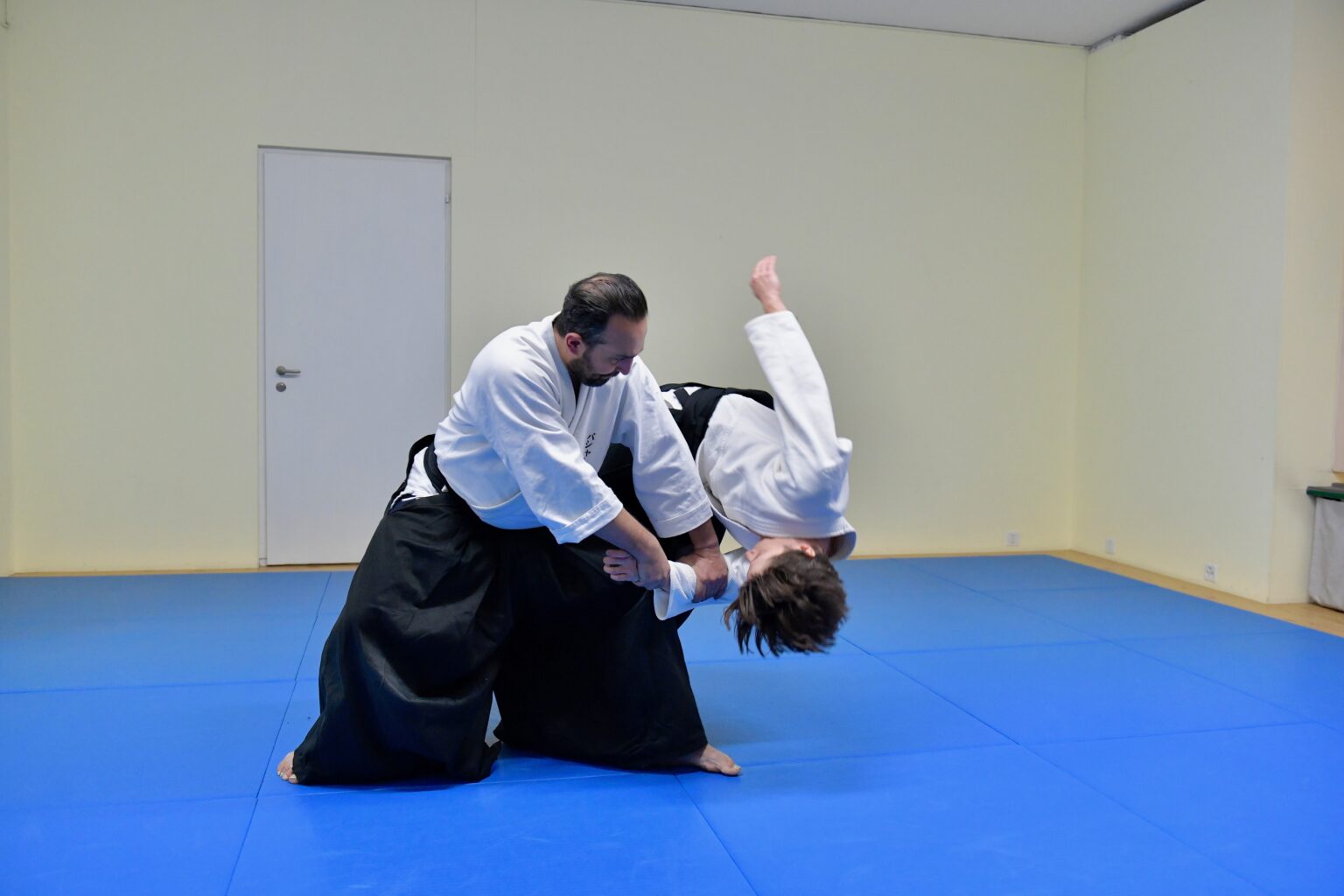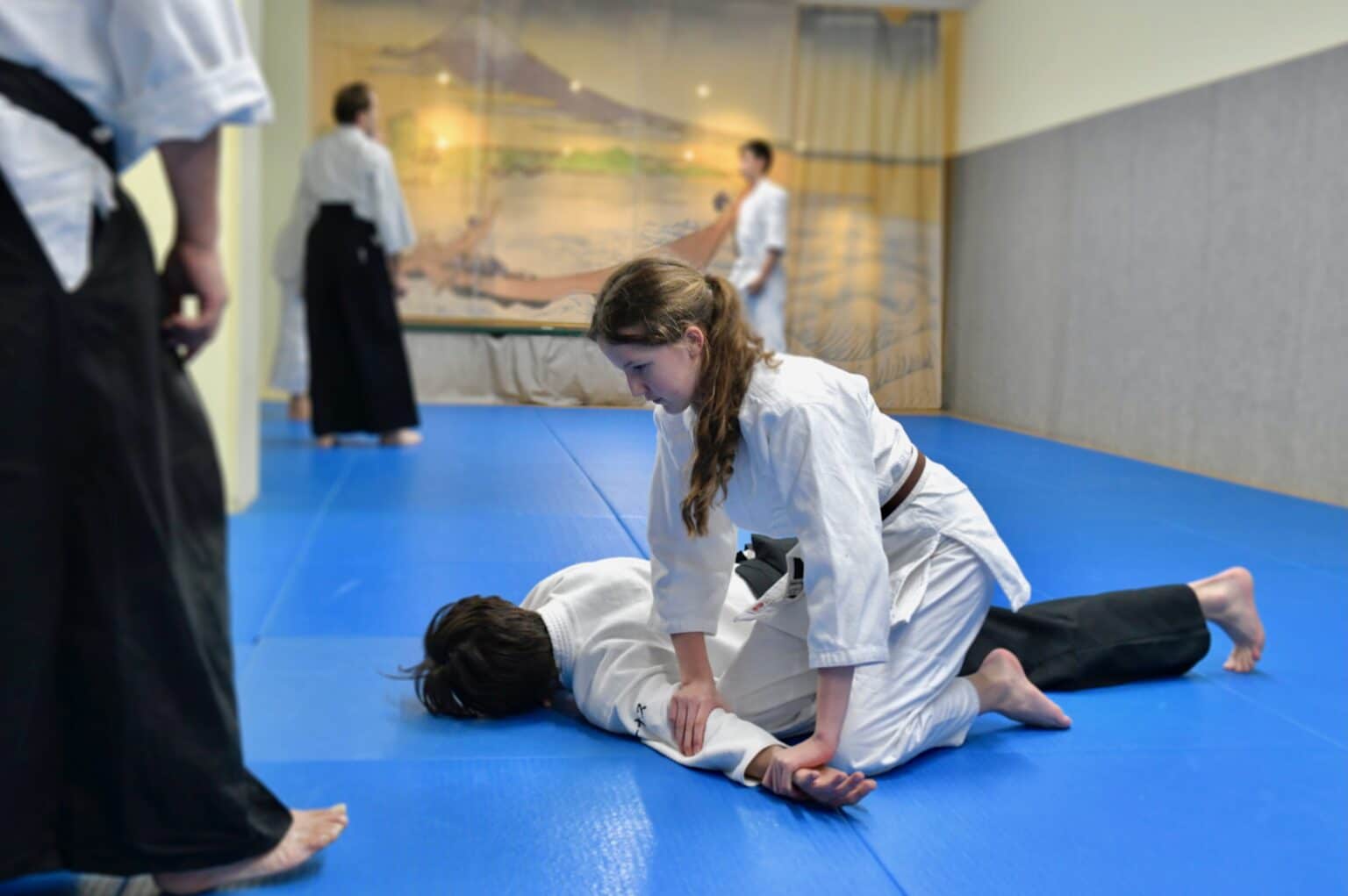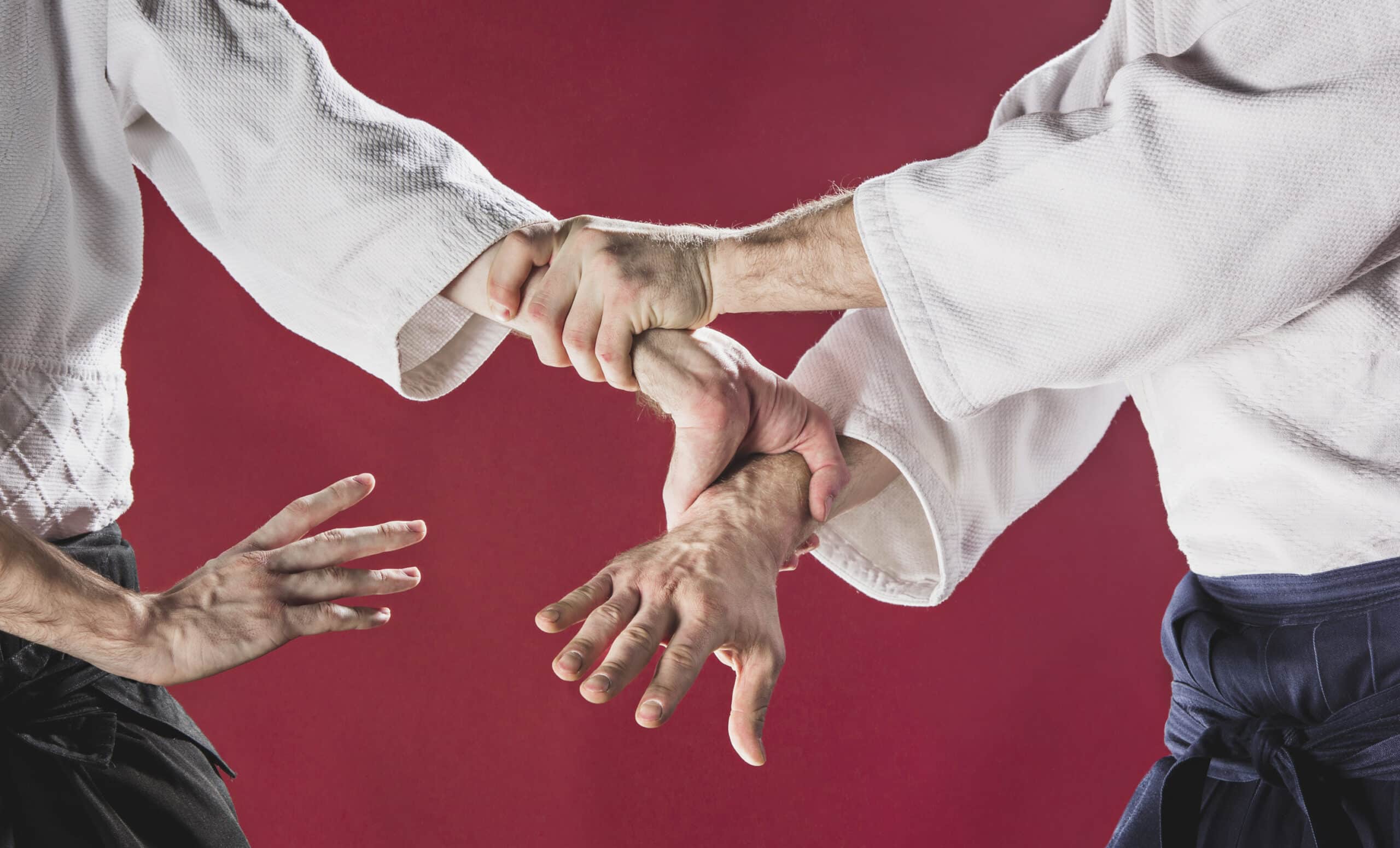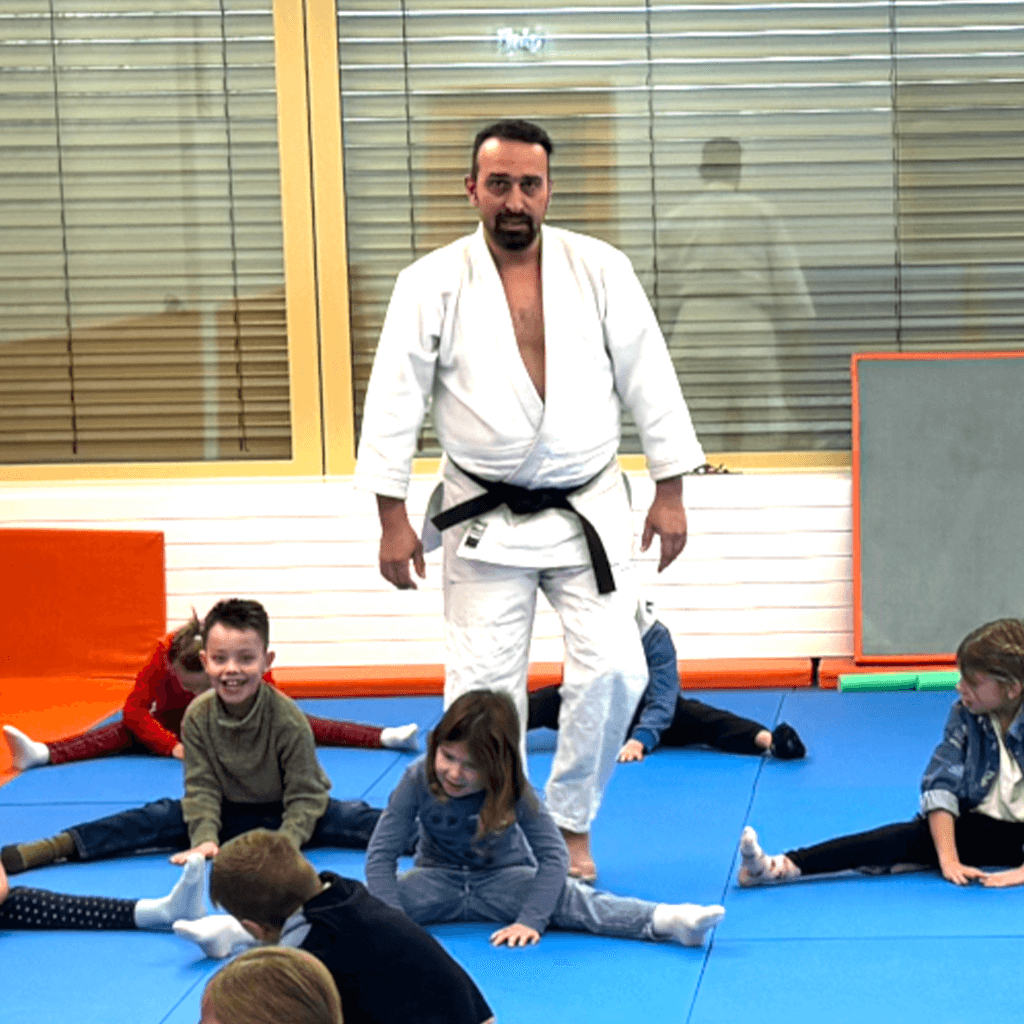We train self-confidence,
strength and concentration.
Aikido is a holistic, defensive martial art. Regular training in the dojo gives our students confidence and inner strength. Aikido helps to reduce stress and has a positive effect on academic performance. For this reason, Aikido is a fixed sports lesson on the timetable in Grades 1 to 5.


MORE THAN JUST SELF-DEFENCE
Aikido offers a profound journey into self-awareness, fostering mindfulness and honing one’s ability to discern the intentions of others. This Japanese martial art is particularly beneficial for the development of children and adolescents. Embracing a holistic philosophy, Aikido transcends the competitive nature of weight divisions and scoring systems, advocating instead for consistent practice that promotes overall physical and mental well-being. Practitioners of Aikido experience comprehensive advantages that span academic achievement, emotional stability, and physical health.
FOCUS AND SELF-CONTROL
The attention required in this defensive martial art also promotes concentration outside the dojo. This helps our students to focus better on academic tasks. Older students, in particular, who organise some of their learning themselves from middle school onwards, benefit from the discipline and self-control developed through Aikido.
PERCEIVING AND CATEGORISING EMOTIONS
Aikido also has a significant emotional component. The practice teaches children and young people to understand and control their own emotions and helps them to recognise the feelings and reactions of others better and respond appropriately. This awareness and mutual respect in the dojo promotes self-confidence and self-esteem. The meditative elements of Aikido also help children and young people to reduce stress and anxiety.
STABILITY AND BALANCE
The diverse movements and techniques of Aikido naturally also promote body control. This benefits hand-eye coordination, balance, motor skills, and general physical fitness, including strength, endurance, and flexibility.
AIKIDO ON THE TIMETABLE
In a world where children and teenagers’ physical and emotional health is becoming increasingly important, Aikido is a promising addition to more traditional sports. This is why we have firmly anchored Aikido in the timetable at the OBS. From grades 1 to 5, martial arts practice is a compulsory 3rd sports lesson every week. Aikido is offered as an afternoon club for our older students.
SELF-DEFENCE
Aikido is characterised by its defensive techniques, which are executed in response to an opponent’s movements. Practitioners skillfully redirect the opponent’s own force to neutralise the threat, effectively using the momentum of the attack to their advantage.
PHILOSOPHY
The name itself reflects the holistic approach of this martial art: “Ai” stands for harmony and adaptation, “Ki” for energy, spirit and will and “Do” for the path and the teaching.
NON COMPETITIVE SPORT
In Aikido, the emphasis is placed on mutual respect rather than competition or performance pressure, which is why there are no competitive matches within this discipline.
STRENGTH AND ENDURANCE
Physical training improves posture, coordination and fitness. Aikido students learn techniques and movement sequences that emphasise agility and flexibility.
MINDFULNESS
Inner contemplation, specific breathing exercises, and meditation equips students with the ability to maintain tranquility and composure throughout the demands of an academic day.
PROGRESS
Our sensei is authorised to conduct belt examinations. This is particularly motivating for the children and young people, as the belt colour makes their skills visible from the outside.

